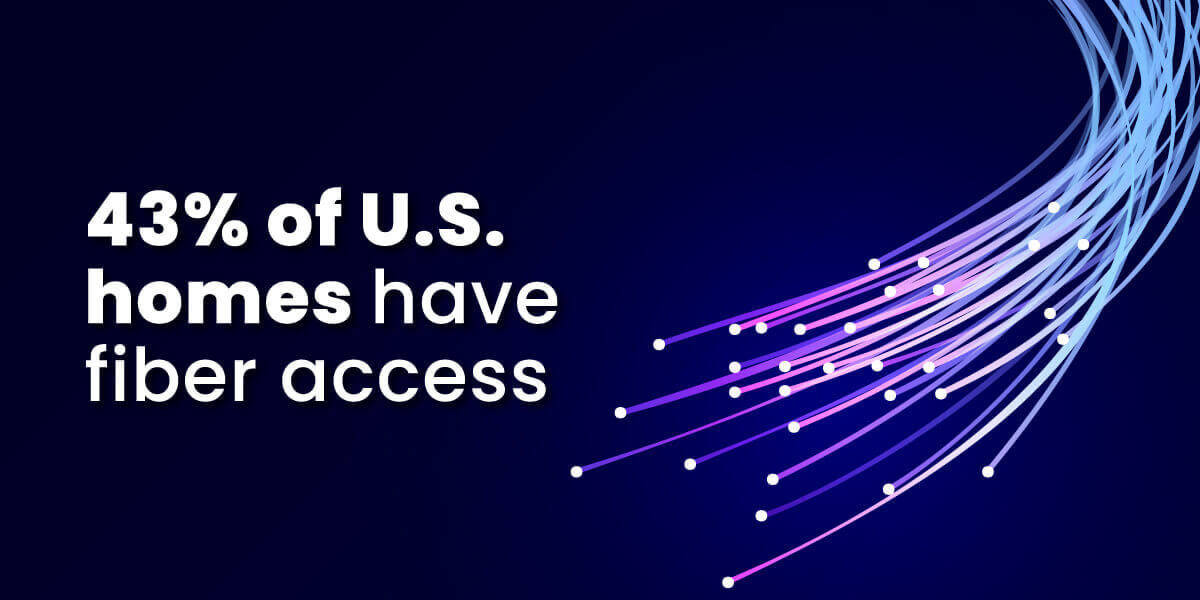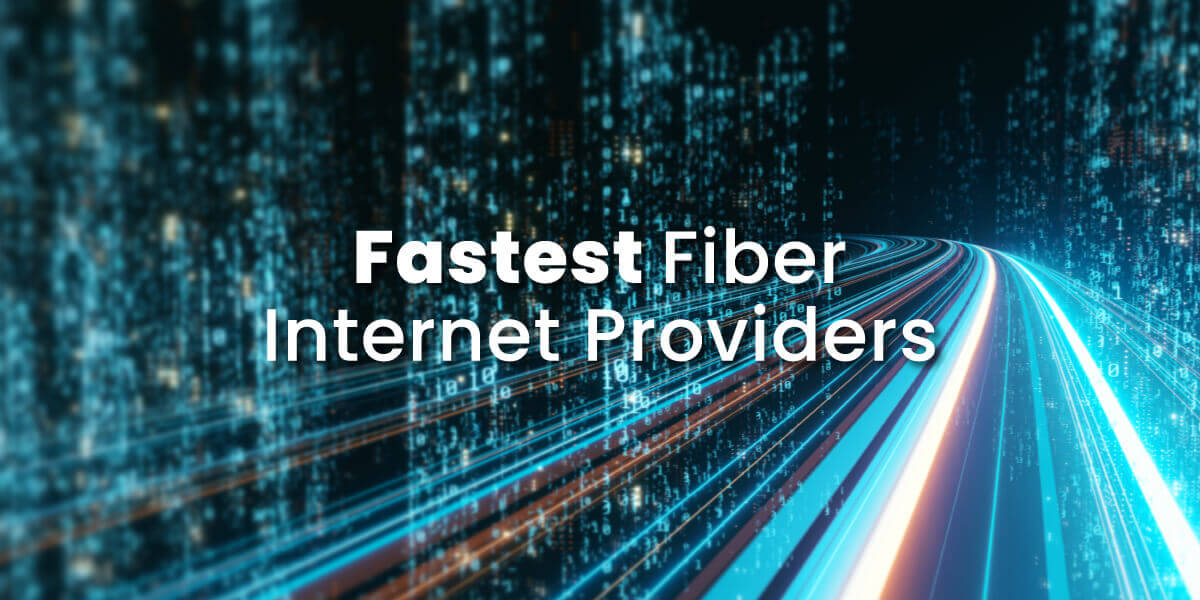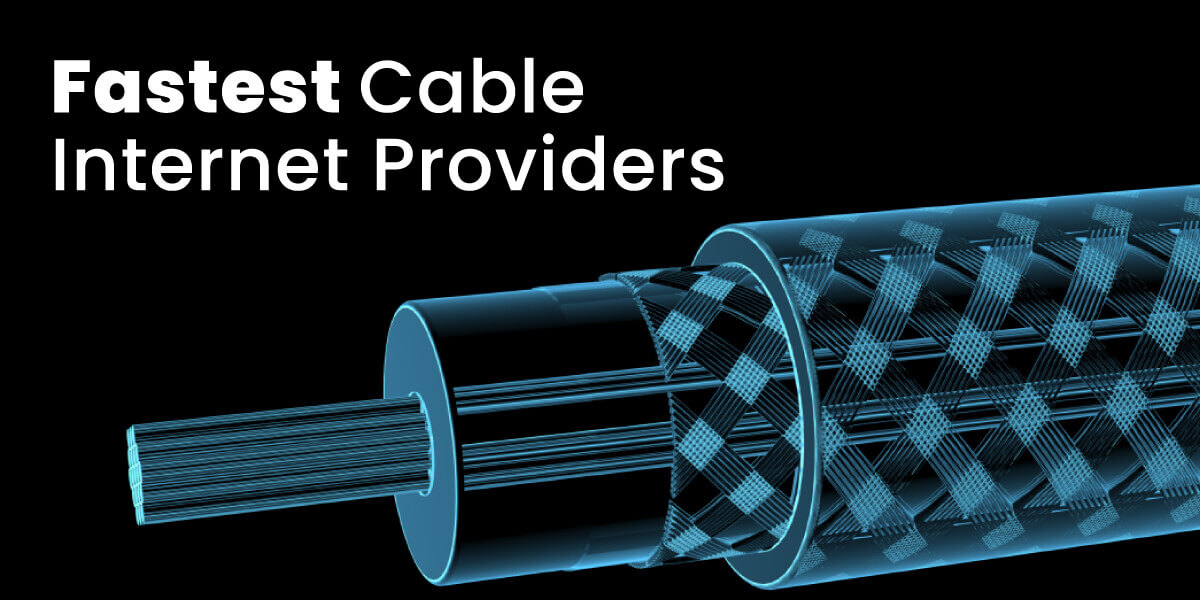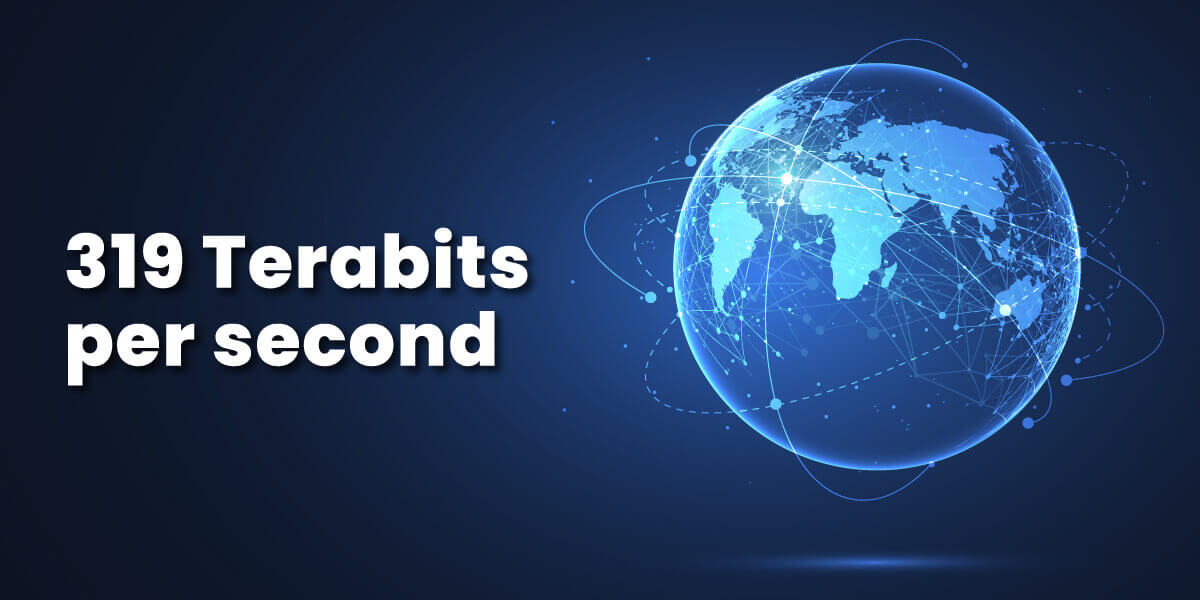Lower your internet bill
61% of people overpay for their internet.
Are you one of them?
Unlock exclusive offers in your area!
Call now
[tel]Enter zip code
1 Star is Poor & 5 Stars is Excellent.
* Required

Written by Rosslyn Elliott - Pub. Sep 26, 2023 / Updated Mar 18, 2024
Table of Contents
Are you happy with your Internet service?

About the author
Having speedy internet is a must these days. Video streaming has changed how we use the internet. Fast speeds are more crucial than ever before, especially if you work from home or stream TV and movies.
With internet providers bragging about fast speeds, how do you pick the right one? This guide will explain what to look for when hunting for the fastest internet providers near you.
There’s no shortage of providers offering high-speed internet and broadband access. You just need to understand how internet speed works and what speed levels suit your online activities. This article will cover the basics of internet speed, then highlight some of the fastest internet companies out there.
Internet speed depends on two key factors: download speed and upload speed. These two will vary based on the type of internet technology connecting you online.
Dial-up and DSL are the slowest internet services on the market. DSL remains common, mostly because many areas lack infrastructure for faster tech.
About 1.9% of Americans still use dial-up, the slowest connection. Dial-up speeds are often under 1 Mbps. Most websites won’t load well at that pace, and videos won’t download smoothly.
At the opposite end of the speed spectrum, around 43% of U.S. homes can get fiber internet with its blazing fast gigabit speeds. Fiber is unique because it has equal upload and download speeds. All other internet types have much slower upload speeds.

Here are the must-know words about internet speed and what providers will offer:
Bandwidth vs. speed: Bandwidth is your connection’s max capacity, showing how much data it can handle at once. Speed is the real-time data transfer rate.
Broadband: High-speed internet connections. The FCC defines broadband as minimum 25 Mbps download and 3 Mbps upload. Broadband means fast, reliable internet.
Download speed: How quickly your connection retrieves data from sites, servers, etc. and transfers it to your router or device.
Mbps: Stands for “Megabits per second" and measures internet speed. For example, a 1000 Mbps or 940 Mbps connection means significant data can transfer each second.
Upload speed: How fast your connection sends data from your router to other devices or servers. Essential for gaming, video calls, and uploading large files.

Here are top ISPs with the fastest residential speeds and great customer satisfaction:
AT&T is the third-largest internet provider in the U.S. As of 2024, AT&T Fiber reaches over 19 million homes.
AT&T Fiber offers speeds up to 5000 Mbps in some areas. They are quickly expanding fiber infrastructure, laying over 60,000 miles of fiber last year.
Why AT&T is Popular: Users often pick AT&T Fiber for the fast download and upload rates with unlimited data and free equipment included.
Verizon Fios uses a fiber network for fast speeds without data caps. They currently have over 7 million broadband customers.
Why Verizon Fios is Popular: Those who can get Verizon Fios benefit from incredibly fast download and upload paces. Plans start at 200 Mbps and go up to 2 Gigs both ways in some areas.
They offer unlimited data and no contracts for gigabit plans. Bundling with TV and phone saves even more.
Other fiber companies with great speeds include Brightspeed Fiber, Kinetic Fiber, Quantum Fiber, Frontier Fiber, Ziply Fiber, Fidium Fiber, Earthlink Fiber, Metronet Fiber, and Lumos Fiber. To see which of these providers serves your area as well as their plan prices and speeds, enter your zip code.

Spectrum is the fastest cable provider nationwide. Ookla SpeedTest named Spectrum as having the fastest average download speeds at 243 Mbps.
Spectrum is one of the biggest internet providers in the U.S. Using hybrid fiber-coax (HFC) tech, Spectrum has taken cable internet to much faster speeds, up to 2 Gigs download in some areas. Upload maxes out around 50 Mbps.
New DOCSIS 4.0 technology will make Spectrum even quicker in the next few years for both upload and download, with some experts even projecting 10 Gig/6 Gig speeds to match fiber.
Why Spectrum is Popular: Spectrum is known for fast, reliable internet and great customer support. They offer straightforward pricing, a free modem/router, and no data caps.
Spectrum also leads the industry in bundling discounts. Bundling internet with Spectrum Mobile will save you hundreds off the annual price of regular cell plans.
New York City has the fastest internet in the U.S. with an average download of 218 Mbps. Los Angeles is close behind at 184 Mbps.
There’s conflicting info online about what speeds you need. Is 1 Gig too much? Is 50 Mbps too little? Here are general speed guidelines for popular plans. Keep in mind download is faster than upload for all except fiber.
100 Mbps is considered very fast by most standards. 100 Mbps gives you enough bandwidth to stream without interruption.
With 100 Mbps up/down, you can:
400 Mbps is ideal for a small business or home with many connected devices.
With 400 Mbps up/down fiber speeds, you can:

1 Gig (1000 Mbps) is more than enough for multiple users, devices, and connections. Many of the fastest packages offer up to 1000 Mbps. Actual speeds usually match advertised speeds for fiber internet.
With 1000 Mbps, you can:
1 Terabit (Tb) per second is not yet possible for commercial and residential uses. But elite research labs worldwide have hit hundreds of TB per second.
Researchers in Japan transferred data at 319 TB per second, setting a new world record. Their work was supported by Japan’s National Institute of Information and Technology. At over 7 million times faster than common home internet, this shows the possibilities ahead.

Latency is related to internet speed. Latency measures the delay in how fast a signal travels over a certain connection. The farther your signal has to travel to reach you, the higher your latency may be.
Issues of latency are most likely to affect you if you do much online gaming or video conferencing. Latency affects the experience because it delays a real-time response within the game or video. For example, if you’re playing a baseball game and you’re experiencing latency while you’re hitting a pitch, you may miss.
In the United States, the internet providers with the lowest latency are fiber providers. But cable providers such as Spectrum also offer very low-latency connections.
Spectrum and Cox were recently named by Ookla SpeedTest as having the fastest average download speeds in the nation.


About the author
Congratulations, you qualify for deals on internet plans.
Speak with our specialists to access all local discounts and limited time offers in your area.
[tel]61% of people overpay for their internet.
Are you one of them?
Unlock exclusive offers in your area!
Call now
[tel]Enter zip code